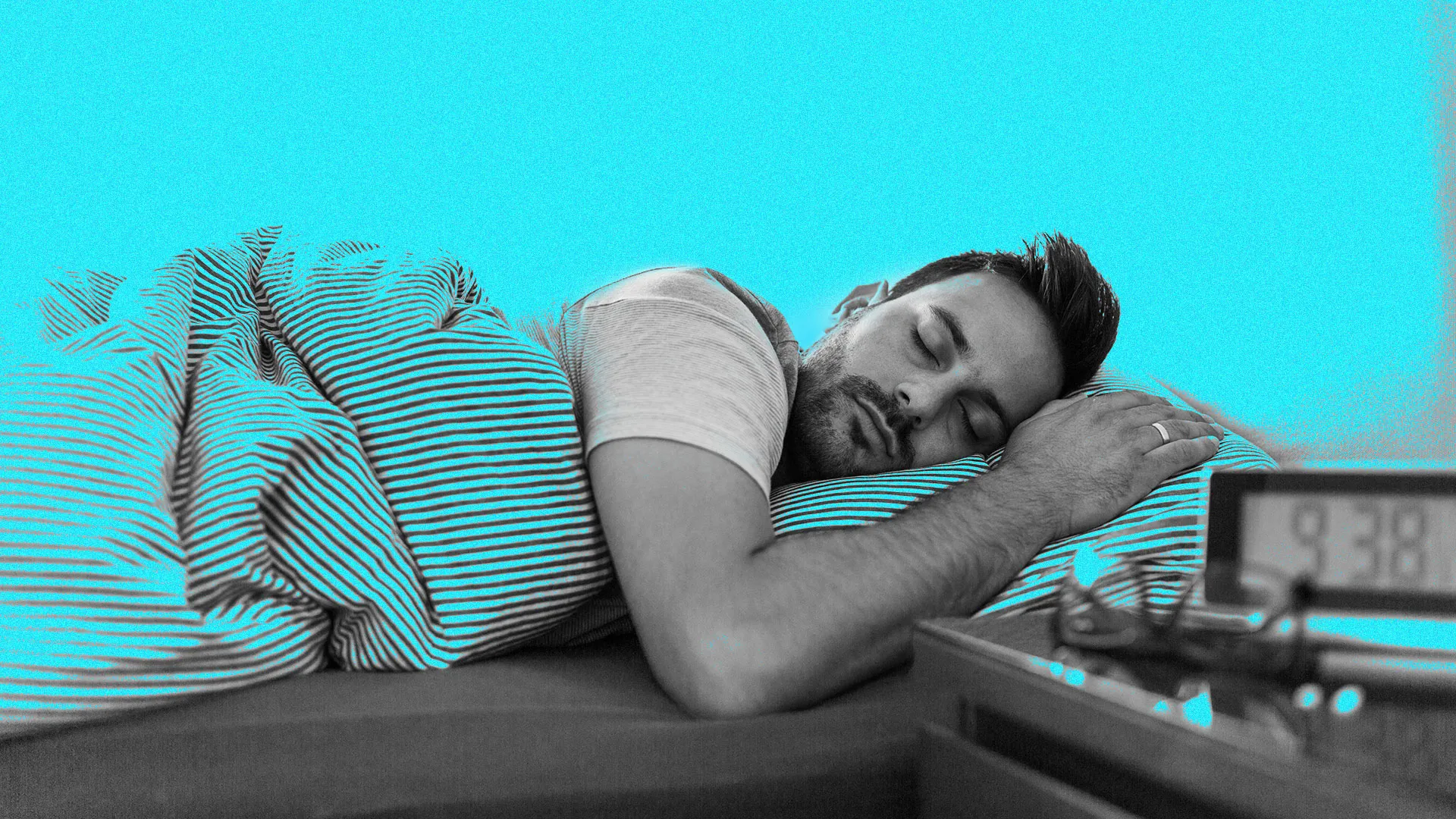Copyright gqindia

While having a comfortable bed outfitted with high-thread-count sheets and pillows that feel like you’re resting your head on heavenly clouds can enhance sleeping, nothing you can buy matters more than your sleep position. “Mattresses and pillows get a lot of attention, but we’re not really built to be very luxurious animals,” says Avinesh S Bhar, MD, a sleep medicine doctor and founder of Sliiip, a sleep and pulmonary medicine telehealth company. Dr Bhar explains that general sleep hygiene habits (like avoiding caffeine too late in the day, minimizing alcohol, and having a screen-free wind-down routine) matter more than what you’re sleeping on. He adds that sleep position matters a great deal too. As sleep doctors explain here, sleep position also impacts how well you’ll sleep and how you’ll feel when you wake up. Why sleep position matters Maybe you’re wondering why sleep position even matters. As long as you’re comfortable and able to drift off to sleep, who cares what it looks like? But think of it as a matter of ergonomics. It matters how you’re sitting at your desk for eight hours every day. And the same goes for how you’re lying in bed at night. Roger Washington, MD, FAAFP, the medical director and founder of the Sleep to Live Well Foundation, says that sleep position is especially important because it impacts how well we can breathe during sleep, which in turn impacts immunity. “In order for the immune system to work, you have to be able to breathe deeply, allowing air to come into the chest and allow the lymph to move around the body,” he says. Lymph is watery fluid that delivers nutrients and removes harmful substances, protecting the body from infection. Dr Washington explains that proper breathing during sleep is important for lymph fluid to move throughout the body. Scientific research backs this up. According to a 2024 article published in Annals of Neuroscience, sleep is when immune cells migrate from the bloodstream into the lymph nodes (bean-shaped areas of tissue that filter lymph fluid in the body for harmful substances or cells) to more efficiently fight inflammation. Anne Marie Morse, DO, a neurologist, sleep medicine specialist, and founder of DAMM Good Sleep, says that how well you can breathe while you’re asleep is important for other reasons too, namely avoiding obstructive sleep apnea. Untreated obstructive sleep apnea can lead to a whole slew of health issues, including high blood pressure, heart disease, and stroke, according to an article published in the Journal of Clinical Sleep Medicine. A 2023 article published in the Journal of Personalized Medicine shows that it impacts quality of life too, increasing the risk for depression, mood swings, and daytime drowsiness. If you do have obstructive sleep apnea, changing your sleep position may not be the only way to treat it, but Dr Morse says it does play a key role. If you regularly suffer from nighttime heartburn, Dr Morse says your sleeping position can impact symptoms for better or for worse, depending on what position you choose. This is another reason why sleep position matters. Finally, your sleep position impacts how your body will feel when you wake up. If you want to avoid pain in your neck and lower back, how you sleep matters. The best sleeping position, according to doctors Dr Morse and Dr Bhar both say that if you don’t have obstructive sleep apnea or heartburn, there isn’t one “best” sleeping position. If you find sleeping on your back the most comfortable, great. Ditto if you prefer side sleeping. But when pressed to give one ultimate best sleep position, all three doctors had the same answer: side sleeping. As the doctors previously explained, the best sleep position largely comes down to supporting breathing, and Dr Washington explains that side sleeping opens up the airway more than back sleeping (and definitely more than sleeping on your stomach). Dr. Bhar says that breathing issues during sleep are much more common than people think, especially for men. In the US, 25% to 30% of men have obstructive sleep apnea. That’s more than one in four. All three doctors explain that when you’re on your back, gravity pulls the tongue backward into the throat. This partially blocks the airway. But when you’re on your side, the airway is kept open, making it easier to breathe. If you get heartburn, Dr Morse recommends sleeping on your left side specifically and also using a wedge pillow to slightly incline the upper body. “This helps keep food down into the stomach and also allows the airway to stay open,” she says. What if you’re not worried about your breathing as much as you are your aching, aging body? The science is mixed on the best sleep position for avoiding pain. In one 2024 Cureus study taking into account 354 people with chronic back pain, side sleeping was most popular for minimizing pain, followed by back sleeping. A 2025 report published in Musculoskeletal Care advocates for either side or back sleeping if you have back pain. The worst sleep position While side sleeping comes out on top as the best sleep position, all three experts are in agreement about the worst: stomach sleeping. Again, it all comes back to supporting breathing and, simply put, it’s hard to take full breaths when you’re sleeping on your stomach. “The worst sleep position is on your belly because when your chest is against the mattress, it doesn’t allow for natural expansion of your lungs,” Dr Bhar says. Dr Washington adds that stomach sleeping isn’t ideal for people of any age. “Stomach sleeping is associated with sudden infant death syndrome (SIDS) in babies and it causes more apnea [in adults],” he says. (It’s worth noting that side sleeping is also linked to SIDS; the best sleep position for babies is on their back, according to a 2022 article in the Journal of Public Health.) Sleeping on your belly also isn’t great for back pain management either. A 2024 study published in Cureus that involved 375 adults with chronic low back pain found that stomach sleeping was most commonly linked with experiencing the condition. The big takeaway here is that posture matters all the time, whether you’re standing, sitting, or sleeping. To feel your best, avoid sleeping on your stomach and try sleeping on your side— doctor’s orders.



